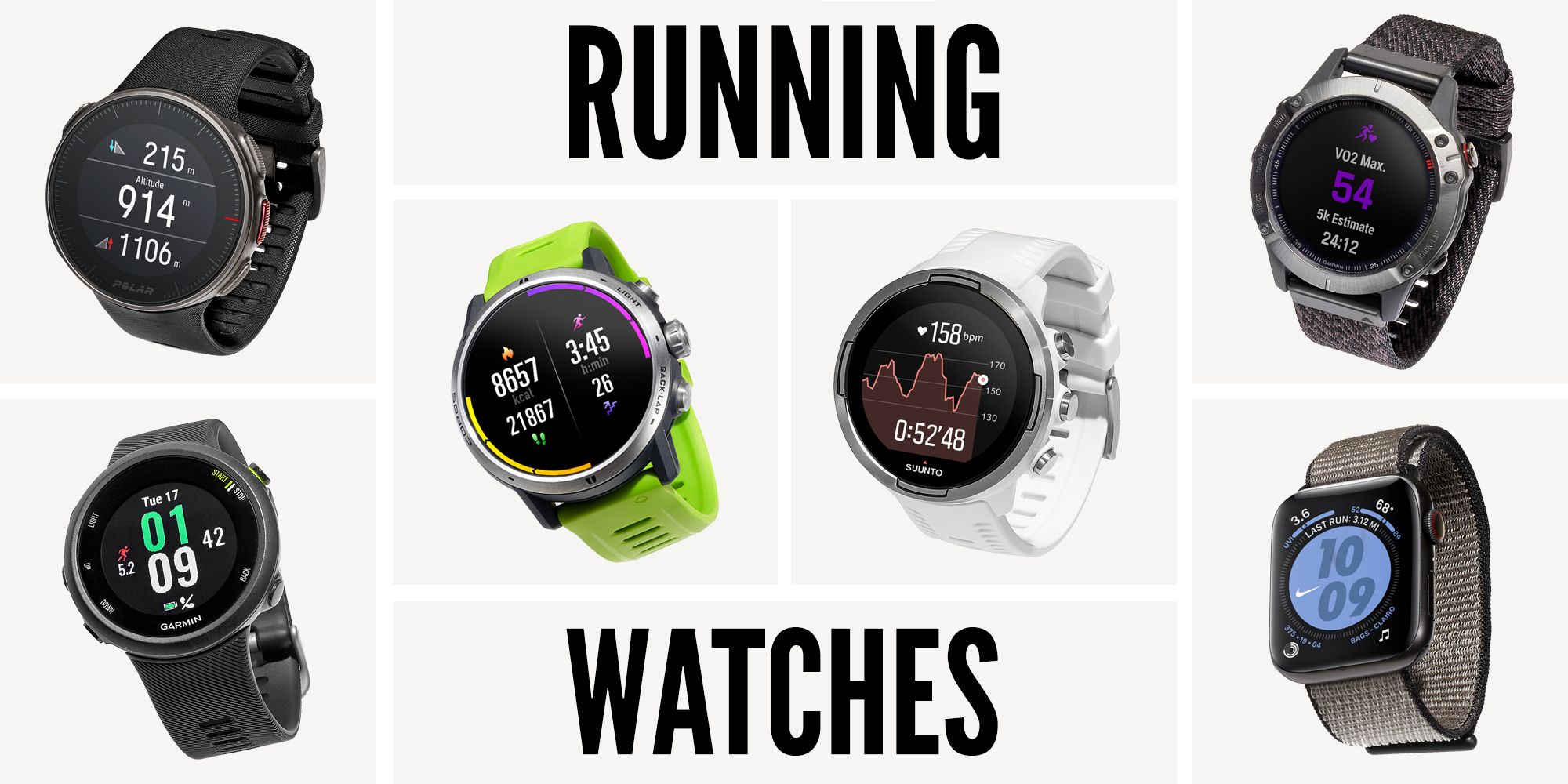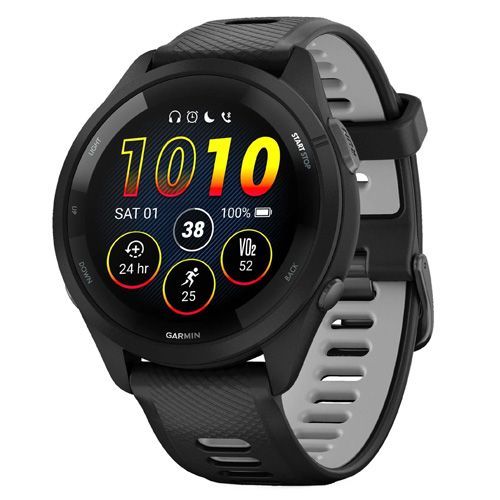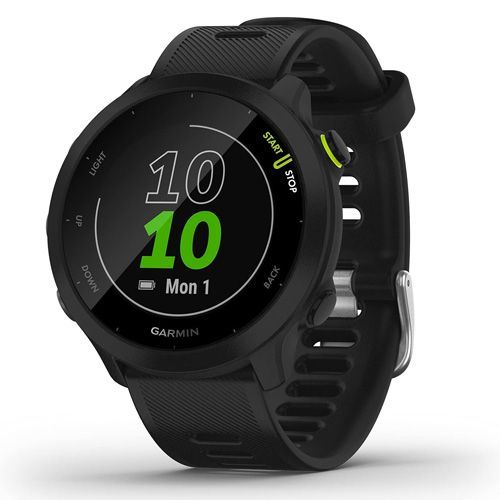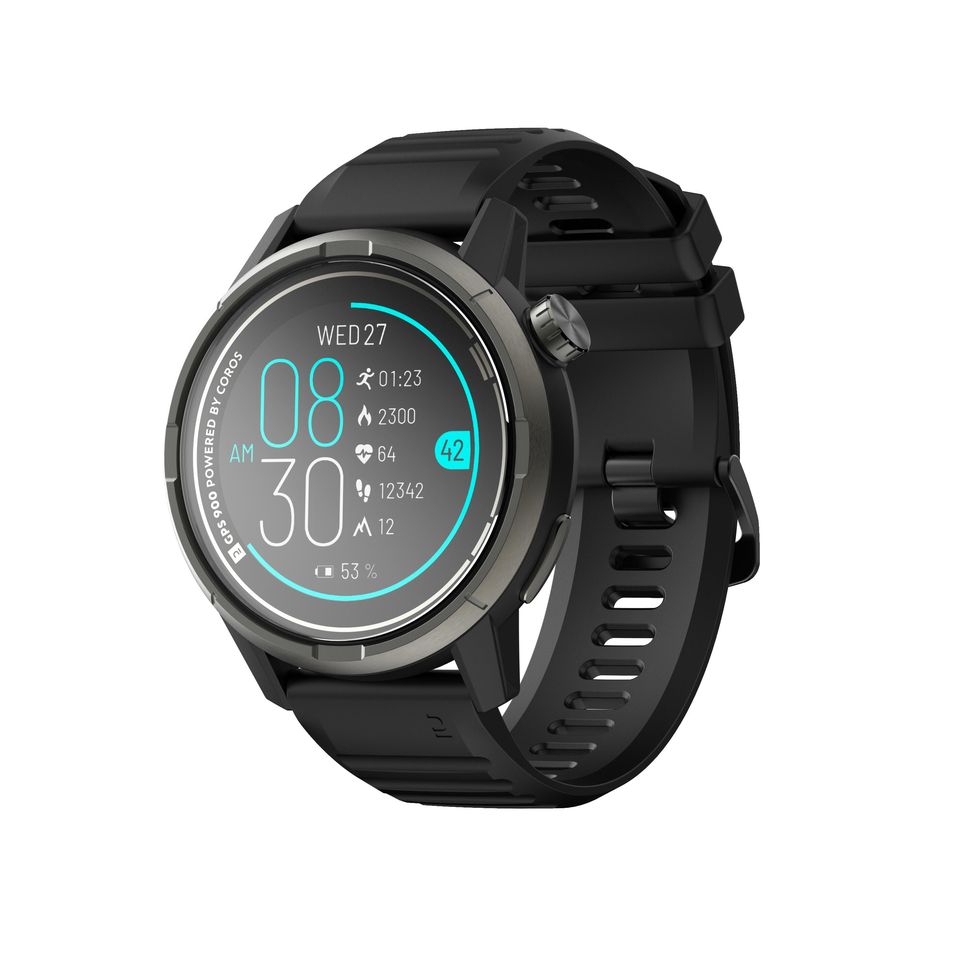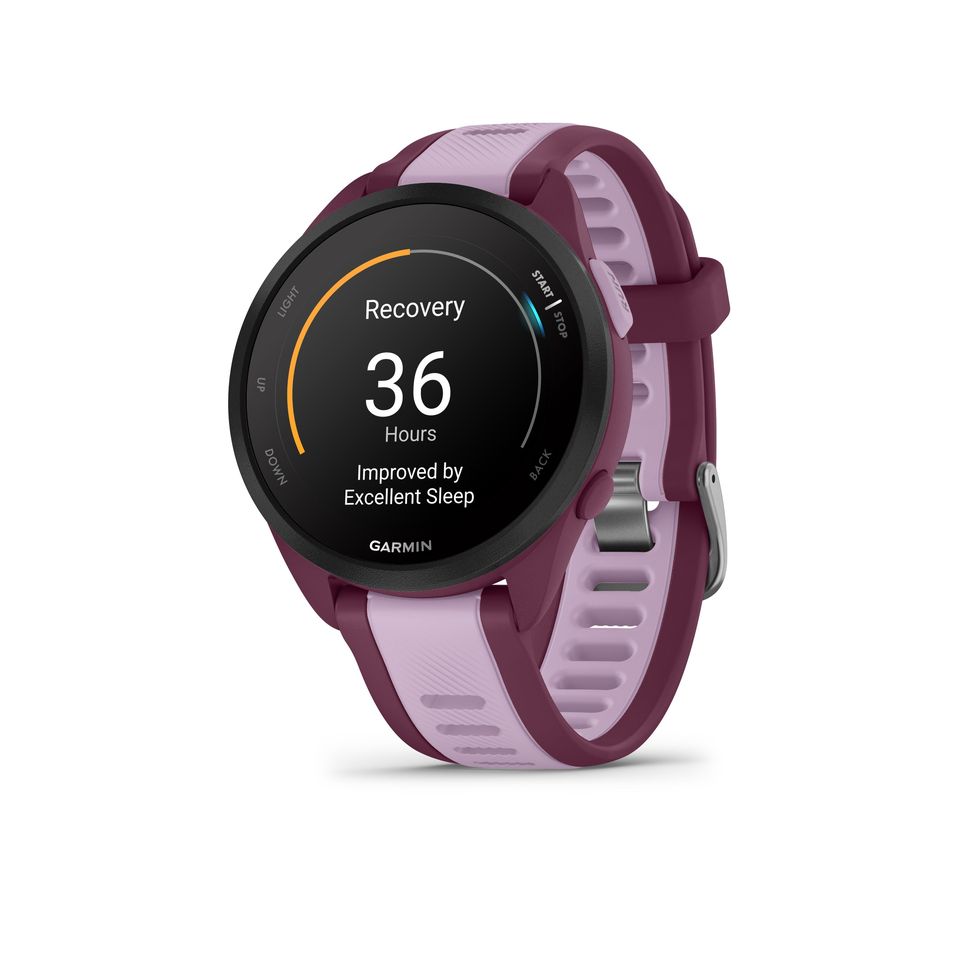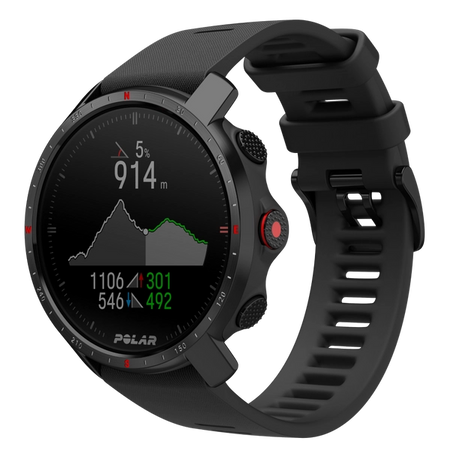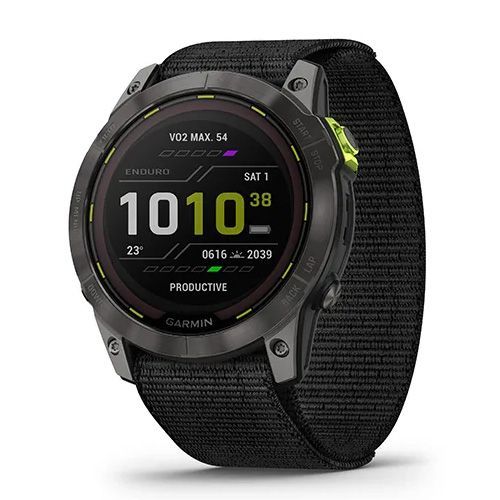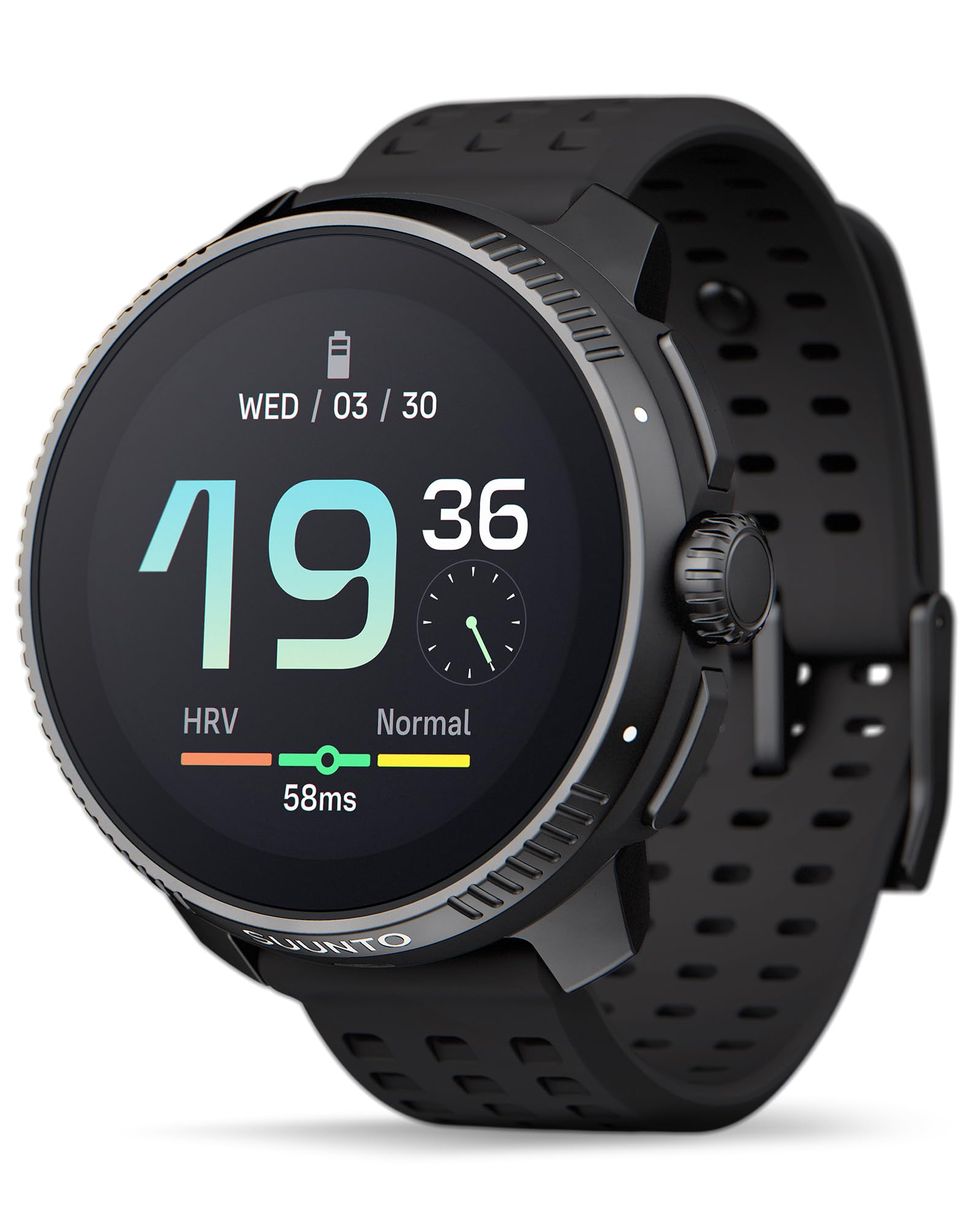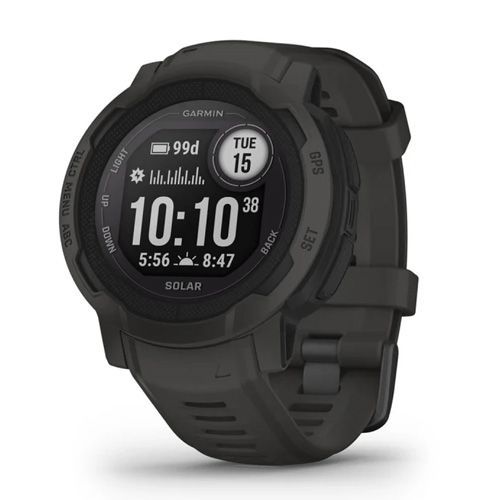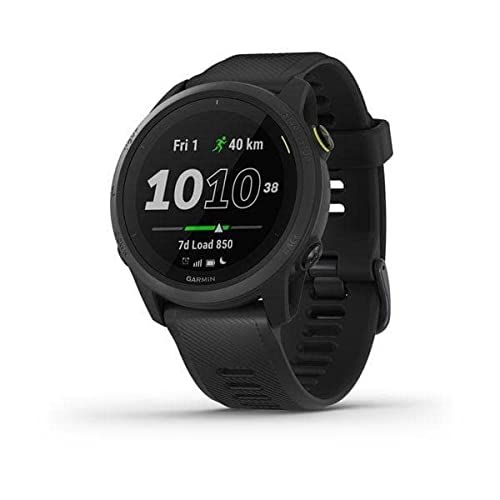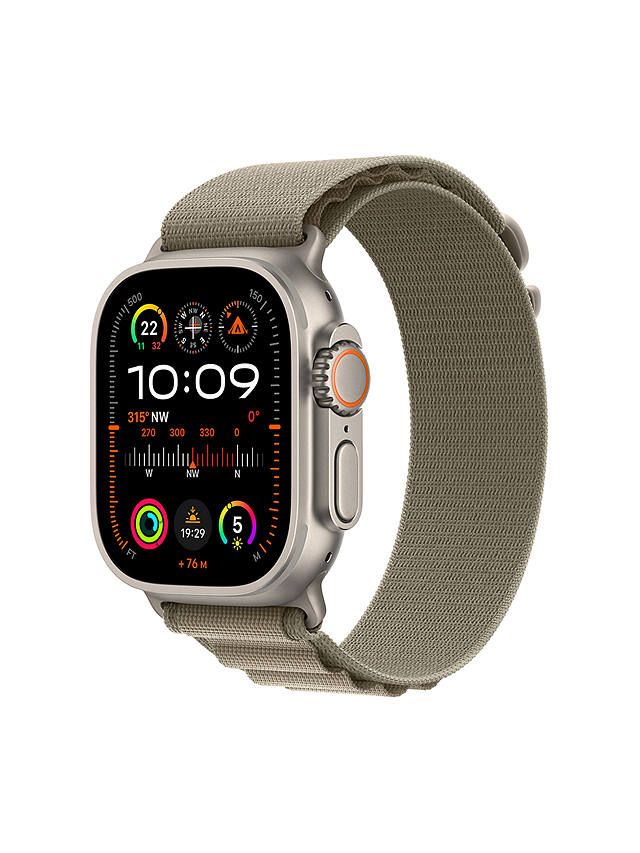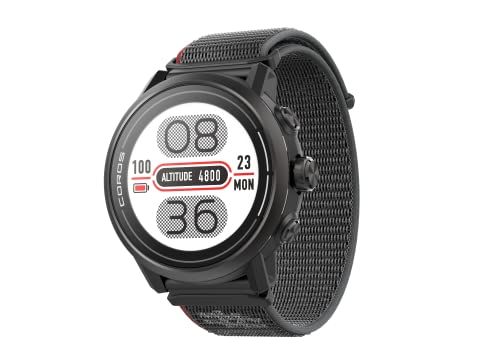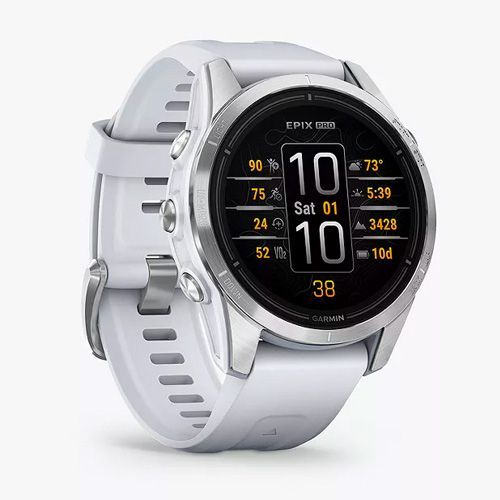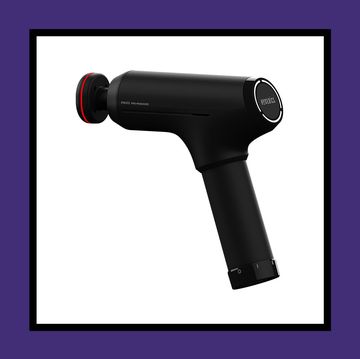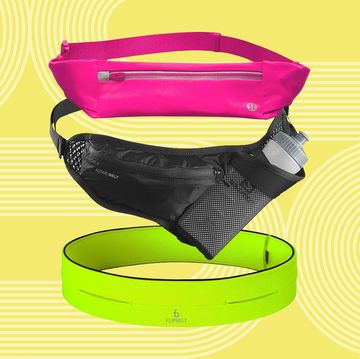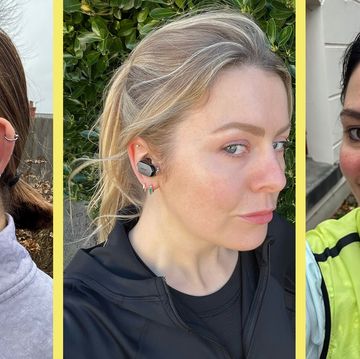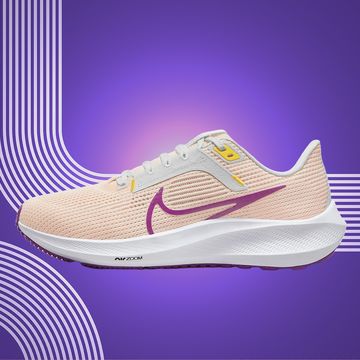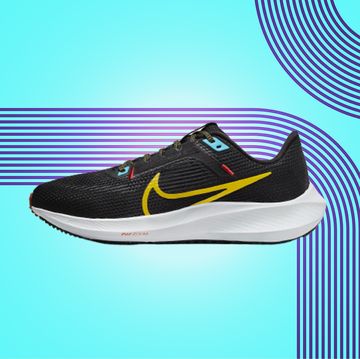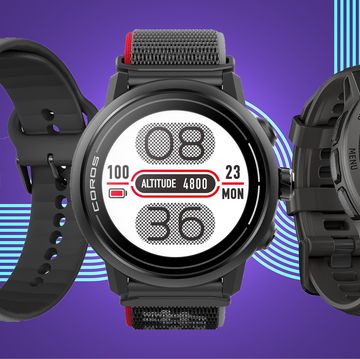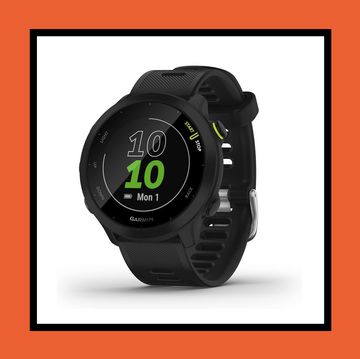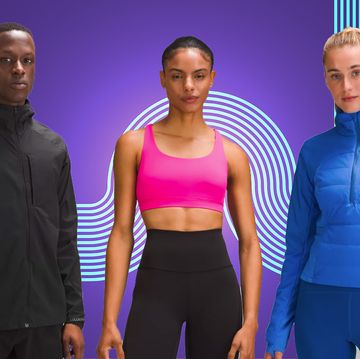Want more tried and tested recommendations from the RW editors? Sign up to our new weekly newsletter Kit Bag, coming soon. Click here to subscribe.
Whether you're looking to track each stride, get to grips with your heart rate, or improve your recovery outside of training, a GPS running watch is the perfect training partner.
But just like a pair of the best running shoes, the same watch won't suit everyone. If you're new to running, you might be looking for a cheap-and-cheerful GPS watch that does the basics well. If you're a seasoned ultramarathon runner, you'll want something hardcore that can handle whatever you decide to throw at it.
Luckily, at RW we've clocked up hundreds of miles on a variety of gadgets, so you'll be sure to find an option that suits you below.
The best GPS running watches to buy in 2024 - Quick links
Ready to record every metric and smash those PBs? Here's our edit of the best GPS running watches available to shop now. Keep scrolling for our full reviews.
How to choose the best GPS watch for running
While a GPS watch can benefit all runners, someone who is training for their first 10k is going to have slightly different needs to a seasoned ultra-marathoner.
Training features: Even the most basic running watches usually come with GPS sensors, step counters and heart rate monitors built-in. The likes of the Garmin Forerunner 55 also comes with Garmin Coach, which features adaptive training plans, daily suggested workouts based on your recovery, and cadence alerts to help with improvements in form.
But the more premium the watch, the more training feedback you'll generally receive, including things like training readiness scores, body battery and endurance scores.
Extra features: If you don’t like taking your phone with you while you run, more premium options also come with offline music and contactless payments, so you can pick up a post-run snack or supplies on route.
Battery life: Affordable options like the Forerunner 55 still have a decent battery life, but generally speaking (asides from the Apple Watch), the more you have to spend, the better the battery life will be. The likes of the Polar Grit X Pro offer 40 hours of run time using GPS, while the Garmin Fenix 7 lasts up to 73 hours in GPS mode.
Fit: If you’re a more petite build, you’ll want something that fits neatly on your wrist, so consider the size of the watch face. No one wants a strap that causes discomfort either. Plus, more hardcore watches built for trail running and multi-day adventures tend to be more rugged in appearance, so if you’re planning on wearing your watch 24/7, including at work, you might want something a bit more paired-back design wise.
Smartwatch vs running watch: Do you plan on wearing your running watch all day, every day, or do just want something you can strap on for training sessions? If it's the former, you'll want something more in the smartwatch realm, like the Garmin Venu, Epix, Fenix 7 or even an Apple Watch. The Forerunner fits the bill for training alone, although the latest Forerunner 965 does bridge the gap from running to smartwatch. Polar's Vantage V3 and the Coros Apex 2 also lean themselves towards being serious training tools.
How we test
We've tested and reviewed the leading GPS running watches on the market, clocking up hundreds of miles as a team. We've put them through their paces at parkruns and ultra races, in urban settings and in remote environments, and in all weather conditions. They've been used as coaches and as stopwatches, the many features explored to see if they're useful or not worth your investment.
The best running watches for 2024
Garmin Forerunner 265
> Read our full Garmin Forerunner 265 review <
Our top pick overall, the Forerunner 265 gives you pretty much everything you’d want in a running watch: a wide range of features, a decent battery life (up to 15 days), accurate tracking and customisable workouts – all without costing as much as Garmin’s flagship bands.
It’s the newest kid on the block too, replacing the 255 and 245 models. While the original is by no means bulky, it also comes in a smaller size for those who want an even lighter wrist companion. It’s got a sharp, colourful display that’s easily bright enough to work for outdoor runs on sunny days.
The Forerunner 265 is pretty hardcore when it comes to features too. It’s got the usual GPS, sleep tracking and fitness modes, but there’s also training status, training readiness and performance condition, which makes this feel like a real athlete’s watch. Our tester found the GPS quick to connect, and it didn’t lose its signal once during testing.
What separate this from the bigger boys like the Fenix 7 and Enduro 2 is the lack of maps and smart assistant – but for most people this won’t be a dealbreaker, and the large suit of features will more than suffice.
Garmin Forerunner 55
If you’re just starting out and want to make the step up from smartphone tracking apps to a running watch, the Forerunner 55 fits the bill. It comes with all the basics, including built-in GPS and optical heart rate monitoring, plus 20 hours’ GPS run time on a single charge and a general usage battery life that’ll get most runners through at least a week’s training.
It’s small, light and comfortable and though the small screen isn’t as easy to read or as luxe as pricier watches, the display does a good enough job in most light conditions.
Unsurprisingly, you don’t get the full suite of training features here, but the Forerunner 55 still has enough tools to cater for a wide range of running needs, with plenty of features geared towards the less experienced. This includes five running modes with track running and a virtual running mode for use with platforms like Zwift, plus Garmin Coach adaptive training plans, daily suggested workouts based on your recovery, handy GPS-based pace guidance for a selected course, cadence alerts to help with improvements in form and recovery advisor for advice on managing your rest between training efforts.
Beyond the run, you also get fitness, stress and body battery energy level tracking. The 55 will also estimate your fitness age - if you dare to look. And there’s women’s health tracking covering menstrual cycle and pregnancy. There’s music controls but no offline music - you’ll need to higher up the Garmin food chain for that and for things like Garmin Pay and other smart features which are missing here too.
Decathlon GPS 900
> Read our full GPS 900 review <
Decathlon’s Kiprun range is all about reliable running gear on a budget, and the GPS 900 – powered by Coros – definitely punches above its price tag. It’s a good option for anyone looking for a capable running partner on a tighter budget, offering more than your regular budget running watches with a simplicity that’ll suit beginner runners.
The 35-hour full GPS battery life extends to 80 hours in Ultramax low-power mode. That outlasts much pricier watches like the new Garmin Forerunner 965 and even the older Fenix 6 watches.
The Kiprun boasts Coros’ impressive suite of training tools, with performance, recovery and activity insights, including running performance, VO2 Max estimates, training load, impact and fatigue feedback.
Navigation functions stretch to breadcrumb route following, off-route alerts and back-to-start guidance. There’s a barometric altimeter for altitude and elevation tracking, too.
You also get smartphone notifications. However, you’re sacrificing bells and whistles like offline music and contactless payments – this is a watch for under £200, after all.
Garmin Forerunner 165
> Read our full Garmin Forerunner 165 review <
The Garmin Forerunner 165 squeezes into Garmin’s crowded running watch line up somewhere between the Forerunner 55 and the Forerunner 265. It’s now Garmin’s cheapest dedicated running watch to pack a bright smartwatch-style AMOLED touchscreen. So if you’ve hankered after a bright, crisp display but the Forerunner 265 is over your budget, this might be the watch for you.
While the AMOLED screen is the hero, behind that stunning display, there’s a fairly comprehensive suite of run-tracking tools targeted at training and racing. It offers the majority of core features you’ll find on the Forerunner 265 with a handful of key omissions. There’s no accuracy-boosting dual band GPS or triathlon sports mode. Plus some of Garmin’s training insights have been left out. There’s no training status, training load, training readiness readouts or Lactate Threshold estimates.
However, when it comes to tracking your runs while you’re actually running, the Forerunner 165 is more than a serious rival for pricier watches on performance and accuracy.
Despite the lack of accuracy-boosting dual-frequency GPS, the Forerunner 165 held its own in tests against the Forerunner 265, Forerunner 965 and the Enduro 2. The optical heart rate performance was also relatively reliable.
You’ll also sacrifice some staying power for that punchy screen. The battery comes in at 19-hours of GPS runtime – that’s shorter than the Forerunner 55 (20 hrs), Forerunner 265 (20 hrs) and the Forerunner 255 (26 hrs).
In tests, without music, a 1:25 half-marathon burned 11% and a 4-hour marathon burned 21% so there’s still plenty to cover most single-session distances. You can expect between 5-8 days general training usage, with around 5-6 hours GPS run time.
Additional tools like contactless payments, WiFi syncing and offline music (if you invest in the pricier Forerunner 165 Music) boost the smartwatch skills. But what you’re getting here is a happily reliable, largely fully featured run tracker, in a compact, comfortable package that represents good value if you’re mainly concerned about what happens during the run or workout.
Polar Grit X Pro
The successor to Polar’s ruggedised, trail-friendly Grit X, the good-looking Grit X Pro offers all of the running, training and recovery features you find on its top-end watches like the Vantage V2, just in a more hench frame.
It also adds a suite of extra navigation tools for tackling more adventurous runs. You get reliable turn-by-turn navigation, with route planning powered by the excellent Komoot. Elevation profiles show you what awaits on the road and trails ahead. Great if you’re racing trail ultras. There’s also TrackBack to guide you back home safely following the route you’ve just run.
You get 40 hours of run time using full GPS and built-in optical heart rate. That extends to 100 hours in low-power mode. On paper that battery life is good but not quite Garmin Enduro or COROS Vertix 2 top-class. And in practice, the Grit X Pro drains a little faster than we’d like.
Polar’s sleep and recovery tools are still the best in business and the Grit X Pro offers everything here including sleep stages, Recovery Pro and workout recommendations based on overnight recovery. It also offers the newer performance and muscle recovery tests, to help you chart trends in your progress and manage your training.
Durability is ramped up too, with a military-grade rating, a scratch-resistant sapphire display and water resistance to 100m. Though at 79g it’s one of the heavier watches and daintier wrists might find it a little chunky.
The GPS link-up was impressively rapid and with support for all the major satellite systems, we found it reliable in our tests. It also packs a barometric altimeter and compass to power those off-beat navigation features.
Throw in FuelWise fuelling recommendations, Hill Splitter automatic climb detection and music controls for Spotify and other music apps, and you’ve got arguably Polar’s best watch right now.
Coros Pace 3
> Read our full Coros Pace 3 review <
If you're after impressive staying power, in-depth training features and accurate GPS, the Pace 3 is one of the best money-can-buy choices right now.
The latest model benefits from an improved heart rate reader with 5 LEDs and four light-detecting photosensors, which act a bit like cameras. There’s also a bigger and better battery life - 24 days daily use and 38 hours continuous GPS (compared with 20 days use and 30 hours GPS in the Pace 2). It's got dual-frequency GPS – the type found in higher-end Garmin watches and the Apple Watch Ultra, which stays impressively stable, even in high-rise urban environments.
There's also new mapping features, including a route planner where you can either build your own custom route or search for a destination and sync it to the watch within the Coros app, and turn-by-turn navigation.
The Pace’s range of advanced running analytics is impressive. On the latest model you can view Running Performance, Training Load, scores and pace ranges for Aerobic Endurance, Aerobic Power, Threshold, Anaerobic Endurance and Anaerobic Power, cadence, stride length, elevation and more within the Coros app. This is then compatible with a selection of third party running apps, including Strava and Apple Health. Plus, the Pace 3 comes with training plans and workouts if you're not following a plan already.
Sure, it is a bit plasticky, so if you're looking for a slightly more premium, all-day smartwatch, that could be a dealbreaker. Ultra and trail runners should probably look elsewhere too. But for everyone else – particularly those looking for a reliable running watch to use for their workouts – it's an excellent watch at a hard-to-beat price.
Garmin Enduro 2
Basically a Fenix 7 with a beefed-up battery life, this hard-wearing hulk of a multisport watch is built to handle offroad and ultrarunning adventures. It’s a hefty investment and is probably more watch than most runners really need. But if you’ve got the means, the Garmin Enduro’s game-changing battery life is mind-blowing.
On paper it claims an unrivalled 80-hour GPS run time – extendable up to 300 hours in endurance mode. That’s boosted by solar charging skills that harness the sun’s rays to boost the Enduro’s endurance. In our tests, the watch lasted an astonishing 30 days on a single charge, with 30 hours of indoor and outdoor GPS-tracked workouts. An eight-hour ultra, using full GPS, burned just 10%. That means, we’ll happily eat a run streak (like a full-month of hour-long efforts) between charges and survive multi-day ultras with ease.
It’s not all battery, though. The Enduro 2 offers Garmin’s complete suite of training tools and insights. That includes reliable heart rate and accurate GPS plus training effect, training load, recovery recommendations and training-session suggestions. Running modes include road, trail, ultra and indoor with trail-adjusted VO2-max estimates and a nifty ultra feature that splits out the time you spend dawdling at aid-station buffets.
Unlike the original Enduro, there’s downloadable maps too, which makes this newer version a better adventure watch. All these features come at a price though, with the Enduro 2 coming in at double the price of the Apple Watch Series 8. Worth considering if you’ll use the watch enough to make the spend worthwhile.
Polar Pacer Pro
This might just be Polar’s best value running watch. For under £300, it packs in many features you’ll find on the brand’s pricier watches into its lightweight 41g frame. And while you don’t get premium materials like titanium bezels, it still looks stylish with interchangeable straps and a sleek-looking frame.
With 35 hours of full GPS run time – extendable up to 100 hours in low-power modes – the battery life is pretty much unrivalled at this price. Only the slightly pricier COROS Apex gets near it. Though in our tests, we got slightly less than the billed 35 hours.
There’s also no touchscreen but the button controls are easy to use and nicely responsive. The display is noticeably brighter than previous Polar watches too, though not quite sharp and vibrant as an Apple Watch or a Garmin Epix.
But what makes the Pacer Pro really stand out is its comprehensive suite of running, training, racing and recovery features. It’s an impressive line-up with the newish running performance test and VO2 Max estimates, running index score that lets you see how you compare to other runners, race time predictor, running power on the wrist and Polar’s Training Load Pro training guidance tools. You also get all-systems satellite support, super-fast GPS link-up, a built-in barometer, turn-by-turn routes powered by Komoot, route elevation profiles and automatic climb detection.
Outside of training, the sleep stages and Nightly Recharge recovery tools are still some of the best you’ll find on any running watch. The only thing missing is Recovery Pro – the more advanced (and more reliable) chest strap-based orthostatic testing for monitoring your body’s response to training and daily stresses.
But for most runners, there’s enough here to make this a real contender and a big rival to the likes of the Garmin Forerunner 265 and COROS Pace.
Suunto Race
The Suunto Race joins the growing line-up of running watches now packing big smartwatch-style AMOLED displays, and despite a bit too much bezel, this one gets a big thumbs up.
For a start, it’s cheaper than many of the AMOLED rivals. The killer crisp, colourful touchscreen is the hero here, elevating Suunto’s strong offline maps and navigation tools, and adding vibrancy to your run data. But behind that smart screen, there’s a capable run tracker, too.
When it comes to insights, Suunto serves up pretty standard fare — all your usual mid-run metrics plus post-run reads on training load, training progress and recovery. There’s also AI coaching advice, race pacing tools and sleep and activity tracking.
Other headlines include accuracy-boosting all-systems, dual frequency GPS and a strong suite of navigation tools with heat-map route planning, breadcrumb trails and estimated time of arrival.
The on-paper battery life is competitive with 40-120 hours and excellent granular power save customisation. In tests, a one-hour run using the highest accuracy GPS mode burned an average of 3%, draining faster than the 40 hours Suunto claims but it matched the Garmin Forerunner 965 and the Polar Vantage V3. The GPS tracking was excellent but the heart rate performance was more mixed. Where optical sensors can struggle, it did.
On features and price it’s in the mix with the Forerunner 965 and Vantage V3, but at 83g, it’s built more like a chunkier Garmin Fenix, Coros Vertix 2 and the Polar Grit X2 Pro. If you’re looking for light and compact, this is not the one.
However, if you want a rugged build there’s a lot of watch here for under £400. Even if you opt for the pricier – and lighter – Titanium model, the Race is still significantly cheaper than the Garmin Forerunner 965 and the Polar Vantage V3.
Garmin Instinct Solar 2
> Read our full Garmin Instinct Solar 2 review <
The Instinct often gets overlooked in ‘regular’ running watch line-ups because of its hardcore adventure credentials, but if you need a run tracker that can handle more extreme excursions than your local parkrun, the Instinct Solar 2 is worth considering.
This military-grade tracking tool is built for serious battles with the outdoors. It’s waterproof to 100m, thermal and shock resistant and has a scratch-resistant display and polymer-toughened case.
But beyond that rugged build, it’s also a capable all-around running tool on and off the road. Its excellent safety features, including incident detection and live location sharing, also make it well-suited to off-road ultras and exploration.
At 53g, it’s lighter and less bulky than a Fenix – almost a Garmin Fenix Lite with a similar styling – and ideal if you’ve got smaller wrists. Despite the smaller screen, stats are still perfectly legible on the move.
It’s also currently the cheapest watch to feature Garmin’s breakthrough solar-charging skills. In the right conditions, that ray-converting solar display can boost an already-competitive 30-hour GPS battery to 48 hours, and stretch the low-power mode from 70 up to 370 hours. We didn’t quite test the 370 hours but on full GPS, those numbers held up.
You also now get access to Garmin’s run-specific tracking, training and recovery tools including VO2 Max estimates, training status, training load, post-run training effect readings and recovery time recommendations. Plus suggested workouts, too.
The lack of maps is surprising on a watch like this but the navigation skills are still strong. You get turn-by-turn breadcrumb and back-to-start navigation, along with distance to destination and future elevation for routes you load onto the watch. That’s particularly useful for trail runs and races.
Music is limited to controls rather than offline playback but there is a ‘kill switch’ feature that instantly wipes the watch of all user data. You know, if things go really badly at your next city marathon.
Polar Vantage V3
The Vantage V3 is Polar’s most-advanced running tracker. A rival for the Garmin Forerunner 965 and the Suunto Race, this slick-looking, well-designed watch offers Polar’s most comprehensive package of performance, recovery and fitness tools. But the headline here is the bright, snappy AMOLED touchscreen that brings a bit of smartwatch clarity to your running stats.
All systems dual frequency GPS successfully boosts the accuracy. In tests, it rivalled the Garmin Forerunner 965 while the Vantage V3’s optical heart rate was about as reliable as wrist-based BPM gets.
The Vantage V3 also packs Polar’s most advanced suite of biosensors – including ECG, blood oxygen and skin temperature sensors. So when it comes to 24-7 tracking capabilities it’s a powerhouse for performance, sleep and wellness.
There’s training effect and load estimates, a huge suite of fitness benchmarking tests and Polar’s comprehensive Recovery Pro tool to help you see how you’re responding to the training (and life) stress.
Battery life is competitive with 61 hour GPS runtime on paper. In testing, it came up a little shorter. That extends up to 190 hours in low power mode. However, you’ll sacrifice accuracy to get that longevity. Still there’s enough juice here on a single charge for a week’s training.
The Vantage V3 is also Polar’s most capable navigation tool with run planning tools like offline maps, easy route planning and turn-by-turn guidance powered by Komoot. Throw in running power on the wrist, adaptive training programmes for 5k up to the marathon and the powerful Polar Flow platform and you’ve got Polar’s most capable tool to date.
It’s missing some smarts you’ll find on the Forerunner 965 including offline music storage, support for streaming services like Spoitfy and contactless payments and on balance of build, battery, accuracy and breadth of features, it’s probably not quite as good overall but it is £80 cheaper.
Garmin Forerunner 745
The 745 is Garmin’s smallest and lightest (47g) triathlon-focused watch. It comes with all the swim, bike and run-training tools we’ve come to expect on a higher-end watch, including training effect, training load, VO2 max for runs and rides and recovery- time recommendations. Plus a performance condition tool that compares your current run performance, in real-time, to other recent efforts. However, many of these features rely on optical heart-rate readings that aren’t always on point.
Garmin has also added daily workout suggestions, based on your recent training history – useful if you’re not sure how to stitch together an effective training schedule. There are also goal-based adaptive training plans and familiar tools such as the running race predictor, though we’ve come to take its optimistic estimates with a big pinch of salt.
The 1.2-inch colour screen is bright and crisp and Garmin’s standard five-button controls – and shortcut menus – make it easy to control on the move and sift through your post-run data.
Overall, this is a well-built, highly capable watch with a surprisingly comprehensive mix of training, racing, navigation and smartwatch skills.
However, there’s a big caveat: the 16-hour GPS battery now seems poor compared with rivals at the same price, even though that extends up to 21 hours in UltraTrac mode. And that makes this a hard one to recommend, particularly if you’re training two or three hours a day.
Apple Watch Ultra 2
Since the first Apple Watch was launched in 2015, Apple have cornered the market in slick smartwatches that are perfect for those who care about their activity levels – or hope to improve them. What they weren’t, really, until last year, was running watches. Or more accurately, running watches that could compete with the likes of Garmin and Coros when it came to the kind of data and mapping that ‘serious’ runners expect.
The advent of the Apple Watch Ultra changed that. With a seriously accurate dual-frequency GPS and – finally – a simple, user-friendly way to pause and restart runs (holding the buttons either side of the watch dial at the same time in a pinching motion) and the ability to set up custom workouts, the Apple Watch was now a genuinely great running watch.
In the Ultra 2, most of the changes are internal rather than external. It has a faster S9 chipset, which means that using Siri is much faster. Also brand new is the rather wonderful Double Tap ‘gesture’. Tapping your index finger and thumb together twice can answer a call, read an alert – anything that the main watch button usually does, it can do too, but with more flair. You can also mute your watch by simply covering it with your hand, which is handy if you’ve accidentally put the volume up so it booms out your km split paces to all and sundry.
What Double Tap can’t do – or at least not yet – is start and stop a run, or mark a segment or lap within one.
The dual frequency GPS is pretty accurate in track and non-track scenarios. Our tester has worn the watch for a few measured races and it’s almost always more accurate through built-up areas than older Garmins. The large, bright screen is also great for looking at maps.
Where the watch still has yet to really compete with its running watch rivals is on battery life. For most people, this probably isn’t an issue: if you do a lunchtime run and perhaps one other workout or tracked walk, then you shouldn’t need to charge the watch at all for a few days. But if you use the Ultra as, well, an Ultra Watch, then you can drain it pretty quickly by using GPS, music and maps at the same time. It certainly wouldn’t last a multi-day self-guided adventure, that’s for sure.
Garmin Fenix 7
> Read our full Garmin Fenix 7 review <
The Fenix 7 is the total running tool. It packs Garmin’s most comprehensive suite of training, racing, fitness, wellness, navigation and smartwatch features. It now also boasts a bigger battery life, improved solar charging, a colour touchscreen and colour TOPO maps. Alongside existing features like suggested workouts, training effect and load feedback, recovery time recommendations, sleep tracking, phone-free music playback and contactless payments.
There’s new military-style multi-band GPS, designed to improve GPS accuracy in areas where regular signals can struggle. Though we didn’t find the all-systems multi-GNSS mode made that much difference.
You also get Stamina – which uses your training history and metrics like max HR and VO2 Max to provide a dynamic read on how much gas you’ve got left in the tank at different paces. All in a watch that’s built big, rugged and durable and eats up urban marathon training and wilder endurance adventures for fun.
You’ll get between 37-89 hours of GPS run time which extends up to an impressive 122 hours with the right power save modes on and good solar conditions. In our tests, an hour’s full GPS run burned just 2% and we’d used just 50% after 15 days wear with 10 hours of training. That’s not the best battery in the business, the COROS Vertix 2 goes longer, but it’s more than enough even for most multi-day ultras.
Speaking of which, the maps and route-following navigation skills will appeal to runners who explore unknown tracks and trails.
With three different case sizes 7S, 7 and 7X, plus standard, solar and solar sapphire editions, the Fenix 7 range features a huge range of designs and specs. And a wide price range. But for our money, the Fenix 7 Sapphire Solar offers the best bang-for-buck balance of size, features and staying power.
Coros Apex 2
If you regularly swap pavements for trails, the Apex 2 is another watch that’s built for long-haul off-road mileage but packs plenty for regular road runners too. Not least, the standout feature here: Coros’s trademark staying power, with up to 45 hours of full GPS use (that’s five more than the original Apex). Plus, it takes less than two hours for the watch to go from zero to full charge.
The Apex 2 comes ready to rumble with the mixed terrain, but tools like track mode – where you set your lane to tune up the GPS accuracy – interval session builder, pre-loaded training sessions and running power on the wrist, make this more than just a trail runner’s tool.
The Pro is sleeker than some adventure running watches. But despite being thinner and noticeably lighter than a Garmin Fenix 7, it’s still a chunk of a watch that can swamp smaller wrists.
That’s partly thanks to a tough, 1.2-inch sapphire glass, colour touchscreen that’s happy to take knocks and offers ample real estate for your stats. Under its rugged exterior, the Apex’s suite of sensors includes a barometric altimeter for real-time acclimatisation readouts and a compass to power turn-by-turn and back to start navigation.
With free global offline Landscape and Topographical maps, you can access critical navigation information in the most remote locations. The digital dial on the watch allows you to zoom in and out of your map too. GPS performance is strong, and the optical heart rate performs well on steady runs – though it can struggle to track higher intensity bursts during interval sessions or steep hill climbs, so training-insights data may be skewed.
Garmin epix Pro (Gen 2)
If you're used to one of Garmin's more affordable smartwatches like the Venu 2 Plus, the Garmin epix Pro will definitely feel like a step up in comparison. This is a running watch for front-of-the-pack runners – those who prefer more of a rugged build but don’t want to compromise on a super sharp display.
It has a crystal-clear AMOLED touchscreen display, a whole host of advanced training features on top of Garmin’s usual 24/7 health and wellness monitoring, a built-in LED flashlight for training in the dark and 30 new preloaded sport activities including basketball and horseback riding. If that wasn't enough, there's also new training features including ‘hill score’ – which measures your capability for running uphill and assesses your progress based on your VO2 Max estimate – and ‘endurance score’, which looks at your ability to sustain prolonged efforts.
There’s no beating around the bush here – this is an expensive watch. But the epix Pro does feature a whole load of impressive features – including an optimised heart rate sensor and new weather map overlays. So if you’re currently thinking about upgrading from an older Forerunner (or, indeed Venu), this really is an excellent smartwatch.
Coros Vertix 2
The Vertix 2 is COROS’ flagship running watch and a firm rival to the Garmin Fenix. Its stand-out feature is a mind-boggling 140-hour GPS battery life. But there’s more to this 91g rugged beast than endurance. It packs an altimeter, barometer and compass, all-systems dual frequency GPS for improved accuracy, offline TOPO maps, 32GB music storage and offline playback. Plus the brand new EvoLab suite of performance insights and training tools that puts COROS on a par with its rivals.
That includes real-time training load, VO2 Max, pace and intensity guidance, base fitness level, fatigue level, load impact and recovery time recommendations. It’ll also assess your running performance level, give you a marathon-level benchmark and predicted race times.
On paper, the Vertix 2’s 140 hours full GPS can be extended to 240 hours in UltraMax lower power mode. But drops to 50 h0urs when you turn on the All Systems GPS with Dual Frequency to squeeze out extra accuracy. And just 30 hours if you’re using music.
In our tests, where we ran a marathon a day for 7 days, the Vertix 2 lasted 2 weeks and 5 hours, including those seven marathons. That’s 189 miles and 30.5 hours of GPS running with some runs in the most draining All Systems + Dual Frequency Mode, all using optical HR and one also using music for 3 hours.
The Vertix 2’s large sapphire 280 x 280 pixel LCD 64-colour touchscreen display sits in a slick titanium alloy bezel and casing and there’s also an Electrocardiogram (ECG) Sensor built into the outer bezel for accurate Heart Rate Variability readings. Something you won’t find on any Garmin.
